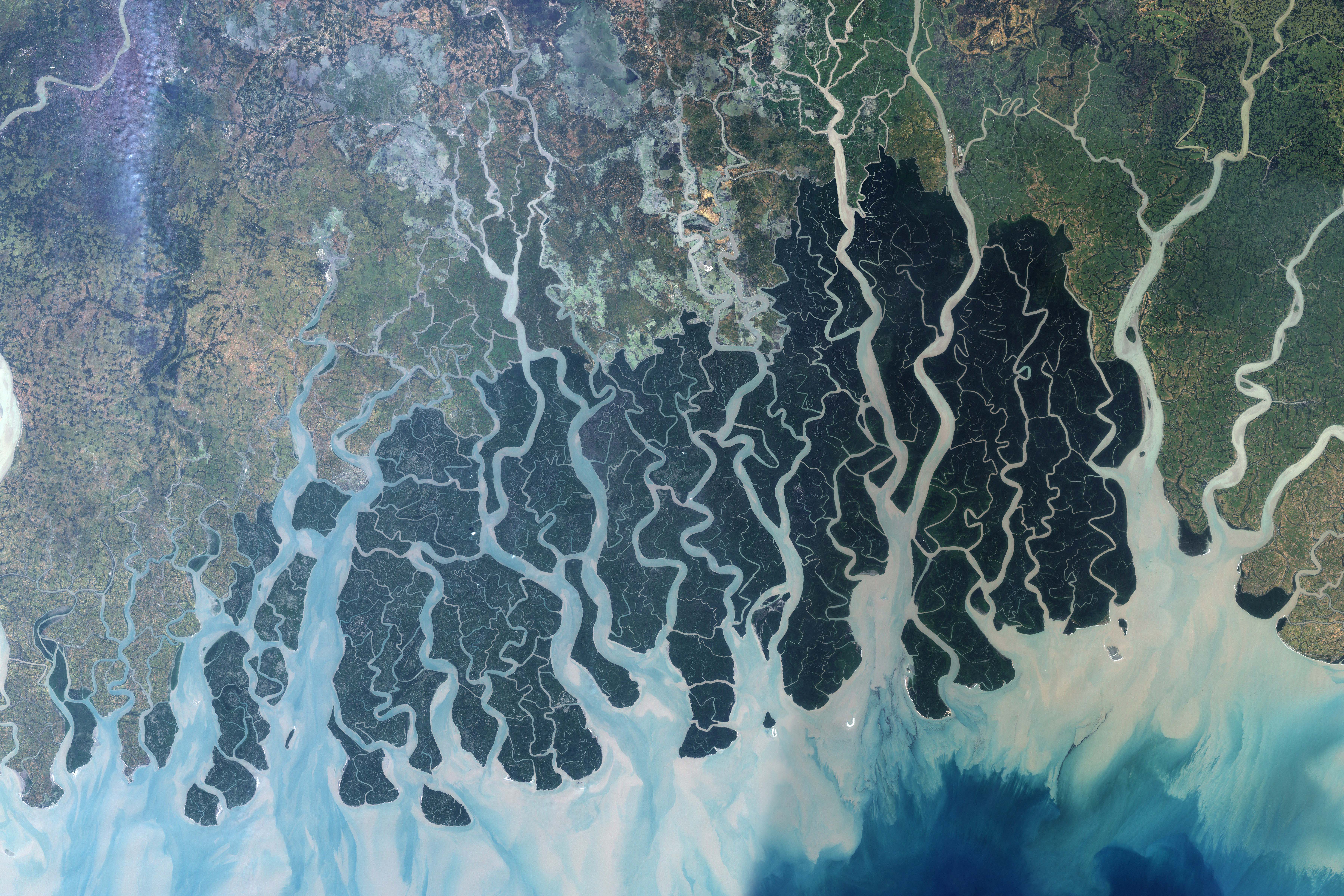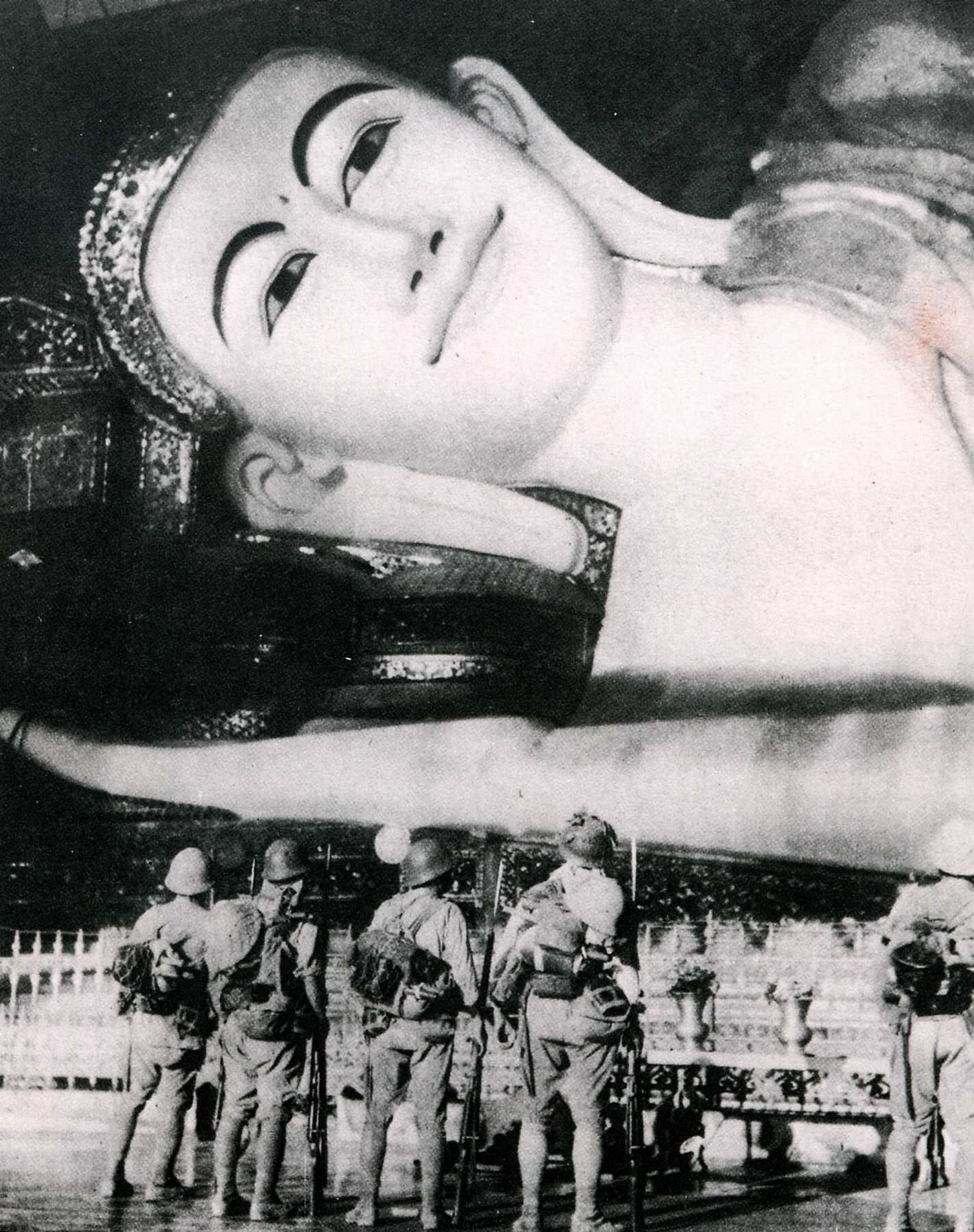|
Bengal Famine Of 1943
The Bengal famine of 1943 was a famine in the Bengal province of British India (present-day Bangladesh, West Bengal and eastern India) during World War II. An estimated 800,000–3.8 million people died, in the Bengal region (present-day Bangladesh and West Bengal), from starvation, malaria and other diseases aggravated by malnutrition, population displacement, unsanitary conditions, poor British wartime policies and lack of health care. Millions were impoverished as the crisis overwhelmed large segments of the economy and catastrophically disrupted the social fabric. Eventually, families disintegrated; men sold their small farms and left home to look for work or to join the British Indian Army, and women and children became homeless migrants, often travelling to Calcutta or other large cities in search of organised relief. Bengal's economy had been predominantly agrarian at that time, with between half and three-quarters of the rural poor subsisting in a "semi-starved cond ... [...More Info...] [...Related Items...] OR: [Wikipedia] [Google] [Baidu] |
The Statesman (India)
''The Statesman'' is an Indian English language, English-language broadsheet daily newspaper founded in 1818 and published simultaneously in Kolkata, New Delhi, Siliguri and Bhubaneswar. It incorporates and is directly descended from ''The Friend of India''. It is owned by The Statesman Ltd and headquartered at Statesman House, Chowringhee Square, Kolkata, with its national editorial office at Statesman House, Connaught Place, New Delhi. It is a member of the Asia News Network. ''The Statesman'' has an average weekday circulation of approximately 234,000, and the ''Sunday Statesman'' has a circulation of 250,000. This ranks it as one of the leading English newspapers in West Bengal, India. History ''The Statesman'' is a direct descendant of two newspapers, the Bombay (now Mumbai) based ''Indian Statesman'' and ''The Friend of India'' published in Calcutta (now Kolkata). ''Indian Statesman'' was started by Robert Knight (newspaperman), Robert Knight, who was previously the pr ... [...More Info...] [...Related Items...] OR: [Wikipedia] [Google] [Baidu] |
British Indian Army
The Indian Army was the force of British Raj, British India, until Indian Independence Act 1947, national independence in 1947. Formed in 1895 by uniting the three Presidency armies, it was responsible for the defence of both British India and the princely states, which could also have their own Imperial Service Troops, armies. As stated in the ''Imperial Gazetteer of India'', the "British Government has undertaken to protect the dominions of the Native princes from invasion and even from rebellion within: its army is organized for the defence not merely of British India, but of all possessions under the suzerainty of the Emperor of India, King-Emperor." The Indian Army was a vital part of the British Empire's military forces, especially in World War I and World War II. The Indian Presidencies and provinces of British India, Presidency armies were originally under East India Company command, and comprised the Bengal Army, Madras Army, and Bombay Army. After the Indian Rebellion ... [...More Info...] [...Related Items...] OR: [Wikipedia] [Google] [Baidu] |
List Of Bangladesh Tropical Cyclones
Present day Bangladesh, due to its unique geographic location, suffers from devastating tropical cyclones frequently. The funnel-shaped northern portion of the Bay of Bengal amplifies the storm surge of landfalling tropical cyclones, affecting thousands of people. Some of the most devastating natural disasters in recorded history with high casualties were tropical cyclones that hit the region now comprising present-day Bangladesh. Among them, the 1970 Bhola cyclone alone claimed approximately 300,000 to 500,000 lives, making it the deadliest tropical cyclone on record. History Tropical cyclones affecting Bangladesh have killed about 1.54 million people in the Bengal region. Bangladesh Space Research and Remote Sensing Organisation (SPARRSO), a government agency under the Ministry of Defence provides storm predictions and early warnings using feeds from NASA and NOAA's satellites. The warnings are usually given in a scale of 10, with 10 being used for the deadliest storms ... [...More Info...] [...Related Items...] OR: [Wikipedia] [Google] [Baidu] |
Refusal Of Imports
Refusal may refer to: * "The Refusal", a 1920 short story by Franz Kafka * Refusals and runouts, a concept in equestrianism * Refusal of work * Refusal to deal * Refusal of medical assistance * Refusal skills * Driven to refusal, an engineering/surveying term used in pile-driving See also *Refuse *Refused Refused (also known as the Refused) is a Swedish hardcore punk band originating from Umeå and formed in 1991. Refused is composed of vocalist Dennis Lyxzén, guitarist Kristofer Steen, drummer David Sandström, and bassist Magnus Flagge. Guita ... * * Denial (other) * Deny (other) {{Disambiguation ... [...More Info...] [...Related Items...] OR: [Wikipedia] [Google] [Baidu] |
Churchill War Ministry
The Churchill war ministry was the United Kingdom's unity coalition government for most of the Second World War from 10 May 1940 to 23 May 1945. It was led by Winston Churchill, who was appointed prime minister of the United Kingdom by King George VI following the resignation of Neville Chamberlain in the aftermath of the Norway Debate. At the outset, Churchill formed a five-man war cabinet which included Chamberlain as Lord President of the Council, Clement Attlee as Lord Privy Seal and later as Deputy Prime Minister, Viscount Halifax as Foreign Secretary, and Arthur Greenwood as a minister without portfolio. Although the original war cabinet was limited to five members, in practice they were augmented by the service chiefs and ministers who attended the majority of meetings. The cabinet changed in size and membership as the war progressed but there were significant additions later in 1940 when it was increased to eight after Churchill, Attlee, and Greenwood were joined b ... [...More Info...] [...Related Items...] OR: [Wikipedia] [Google] [Baidu] |
Embargo
Economic sanctions or embargoes are commercial and financial penalties applied by states or institutions against states, groups, or individuals. Economic sanctions are a form of coercion that attempts to get an actor to change its behavior through disruption in economic exchange. Sanctions can be intended to compel (an attempt to change an actor's behavior) or deter (an attempt to stop an actor from certain actions).Haidar, J.I., 2017Sanctions and Exports Deflection: Evidence from Iran" Economic Policy (Oxford University Press), April 2017, Vol. 32(90), pp. 319–355. Sanctions can target an entire country or they can be more narrowly targeted at individuals or groups; this latter form of sanctions are sometimes called "smart sanctions". Prominent forms of economic sanctions include trade barriers, asset freezes, travel bans, arms embargoes, and restrictions on financial transactions. The efficacy of sanctions in achieving intended goals is a subject of debate. Scholars hav ... [...More Info...] [...Related Items...] OR: [Wikipedia] [Google] [Baidu] |
Scorched Earth
A scorched-earth policy is a military strategy of destroying everything that allows an enemy military force to be able to fight a war, including the deprivation and destruction of water, food, humans, animals, plants and any kind of tools and infrastructure. Its use is possible by a retreating army to leave nothing of value worth taking, to weaken the attacking force or by an advancing army to fight against unconventional warfare. Scorched earth against non-combatants has been banned under the Additional Protocol II, 1977 Geneva Conventions. Origin of the term The term was found in English in a 1937 report on the Second Sino-Japanese War. The retreating Chinese forces burned crops and destroyed infrastructure, including cities, to sabotage the logistics of the advancing Japanese forces. Military theory Clausewitz wrote in ''Principles of War'': Clausewitz wrote in ''On War'': Historic examples Notable historic examples of successful scorched-earth tactics include the fai ... [...More Info...] [...Related Items...] OR: [Wikipedia] [Google] [Baidu] |
Bengal Famine Of 1943
The Bengal famine of 1943 was a famine in the Bengal province of British India (present-day Bangladesh, West Bengal and eastern India) during World War II. An estimated 800,000–3.8 million people died, in the Bengal region (present-day Bangladesh and West Bengal), from starvation, malaria and other diseases aggravated by malnutrition, population displacement, unsanitary conditions, poor British wartime policies and lack of health care. Millions were impoverished as the crisis overwhelmed large segments of the economy and catastrophically disrupted the social fabric. Eventually, families disintegrated; men sold their small farms and left home to look for work or to join the British Indian Army, and women and children became homeless migrants, often travelling to Calcutta or other large cities in search of organised relief. Bengal's economy had been predominantly agrarian at that time, with between half and three-quarters of the rural poor subsisting in a "semi-starved cond ... [...More Info...] [...Related Items...] OR: [Wikipedia] [Google] [Baidu] |
Denial Policies
Denial, in colloquial English usage, has at least three meanings: * the assertion that any particular statement or allegation, whose truth is uncertain, is not true; * the refusal of a request; and * the assertion that a true statement is false. In psychology, denialism is a person's choice to deny reality as a way to avoid a psychologically uncomfortable truth. In psychoanalytic theory, denial is a defense mechanism in which a person is faced with a fact that is too uncomfortable to accept and rejects it instead, insisting that it is not true despite what may be overwhelming evidence. The concept of denial is important in twelve-step programs, where the abandonment or reversal of denial that substance dependence is problematic forms the basis of the first, fourth, fifth, eighth, and tenth steps. People who are exhibiting symptoms of a serious medical condition sometimes deny or ignore those symptoms because the idea of having a serious health problem is uncomfortable or dist ... [...More Info...] [...Related Items...] OR: [Wikipedia] [Google] [Baidu] |
Japanese Occupation Of Burma
The Japanese occupation of Burma was the period between 1942 and 1945 during World War II, when Burma was occupied by the Empire of Japan. The Japanese had assisted formation of the Burma Independence Army, and trained the Thirty Comrades, who were the founders of the modern Armed Forces (''Tatmadaw''). The Burmese hoped to gain support of the Japanese in expelling the British, so that Burma could become independent.Micheal Clodfelter. Warfare and Armed Conflicts: A Statistical Reference to Casualty and Other Figures, 1500–2000. 2nd Ed. 2002 . p. 556Werner Gruhl, Imperial Japan's World War Two, 1931–1945 Transaction 2007 (Werner Gruhl is former chief of NASA's Cost and Economic Analysis Branch with a lifetime interest in the study of the First and Second World Wars.) In 1942, Japan invaded Burma and, on 1 August 1943, nominally declared the colony independent as the '' State of Burma''. A pro-Japanese government led by Ba Maw was installed. However, many Burmese began ... [...More Info...] [...Related Items...] OR: [Wikipedia] [Google] [Baidu] |
Real Wages
Real wages are wages adjusted for inflation, or equivalently wages in terms of the amount of goods and services that can be bought. This term is used in contrast to nominal wages or unadjusted wages. Because it has been adjusted to account for changes in the prices of goods and services, real wages provide a clearer representation of an individual's wages in terms of what they can afford to buy with those wages – specifically, in terms of the amount of goods and services that can be bought; however, real wages suffer the disadvantage of not being well defined, since the amount of inflation (which can be calculated based on different combinations of goods and services) is itself not well defined. Hence real wage defined as the total amount of goods and services that can be bought with a wage, is also not defined. This is because of changes in the relative prices. Despite difficulty in defining one value for the real wage, in some cases a real wage can be said to have unequivoca ... [...More Info...] [...Related Items...] OR: [Wikipedia] [Google] [Baidu] |
Land Grabbing
Land grabbing is the large-scale acquisition of land through buying or leasing of large pieces of land by domestic and Multinational corporation, transnational companies, governments, and individuals. While used broadly throughout history, land grabbing as used in the 21st century primarily refers to large-scale land acquisitions following the 2007–08 world food price crisis. Obtaining water resources is usually critical to the land acquisitions, so it has also led to an associated trend of water grabbing.Maria Cristina Rullia, Antonio Savioria, and Paolo D’OdoricoGlobal Land and Water Grabbing ''Proceedings of the National Academy of Sciences'' 110, no. 3 (2013): 892–97. By prompting food security fears within the developed world and newfound economic opportunities for agricultural investors, the food price crisis caused a dramatic spike in large-scale agricultural investments, primarily foreign, in the Global South for the purpose of industrial food production, food and bio ... [...More Info...] [...Related Items...] OR: [Wikipedia] [Google] [Baidu] |










